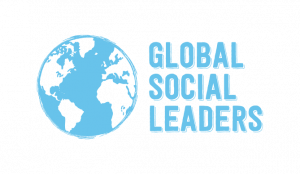If your team has been affected by school closures, or these are a possibility in the near future we would like to share some general advice to keep your Global Goals project going and help you maximise your impact during any periods of self-isolation:
GET ON THE SAME PAGE
If your team’s school has been temporarily closed you may feel thrown off course and lose sight of your objectives. Without a regular face to face meeting it’s more important than ever that your team share a common goal and understand the specific outcome you want from your project.
Make sure you can explain in plain, simple writing why your project exists and what it is trying to accomplish and make sure everyone is in agreement. From there, develop a step by step plan to achieve your goals and objectives that can be carried out from home. When team members share a vision that they can rally behind as a group, alignment becomes easier even if you are not seeing one another face to face
Ensure your goal (or goals!) is specific and measurable, relevant and time based – SMART and that you assign responsibility for each step to a member of the team. You can read more about SMART goal setting here and we challenge you to set your very own 5 SMART goals for your project – https://www.projectsmart.co.uk/smart-goals.php Having clear, SMART objectives will help you to track the impact you are creating throughout the project and recognise when you are being thrown off course.
KEEP TALKING
Communication becomes even more important when you’re in self isolation and if you plan to continue your social action project during this time it’s important everyone in the team stays in touch and supports one another. Share regular updates of your progress and ensure you understand what others in the group are doing to stay on track. You may already be using digital tools to facilitate communication but if not now is the time to set up that Whats App or We Chat group, create a team email address which every member of the team can either view or be copied into, set up google hangouts or video conferences so that you can continue to meet as a team and support one another.
BUILD YOUR SUPPORT BASE
Although it can feel lonely, remember that you’re not the only ones stuck at home looking for distraction or entertainment online! With isolation comes a heavier reliance on social media to stay connected to your community so this could be the best time to launch a social media campaign to build support for your cause.
BUILD PARTNERSHIPS
Another constructive use of your time during this period is to focus on developing partnerships. A well-selected project partner can be a valuable source of advice, resources and even funding. Consider contacting organisations, NGOs or private companies in your country or local area that already do similar work to yours. These organisations are likely to have valuable expertise in your chosen field and may be receptive to working with those with complementary aims. They may share their knowledge with you and tell you what has worked well for them and could provide ideas for your own project.
So, be bold, make approaches and remember you have nothing to lose and potentially everything to gain!
SHARE YOUR STORY
We would love to know how your team is overcoming the obstacles that this global pandemic has placed in your way. You belong to a worldwide movement of socially conscious young leaders and many others will be in the same boat so if you have any personal experiences or success stories to share about this time, please submit a blog which we can share with other young people!
Please click here to share a blog.
GET PLANNING FOR PHASE 3!
From 1st April – 1st May we will be inviting teams to submit your final project report. You may want to use this time to start thinking about creative ways you can communicate your project in written and digital formats. The Projects Library on our website is the perfect place to find inspiration. It is a collection of previous year’s projects that were either highly commended or reached the finals of the competition. You can learn a lot from looking at similar projects to your own, try searching by the Global Goals you have selected to focus on and see if there are any ideas you could borrow!










